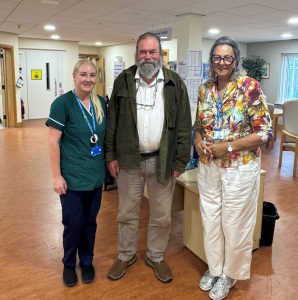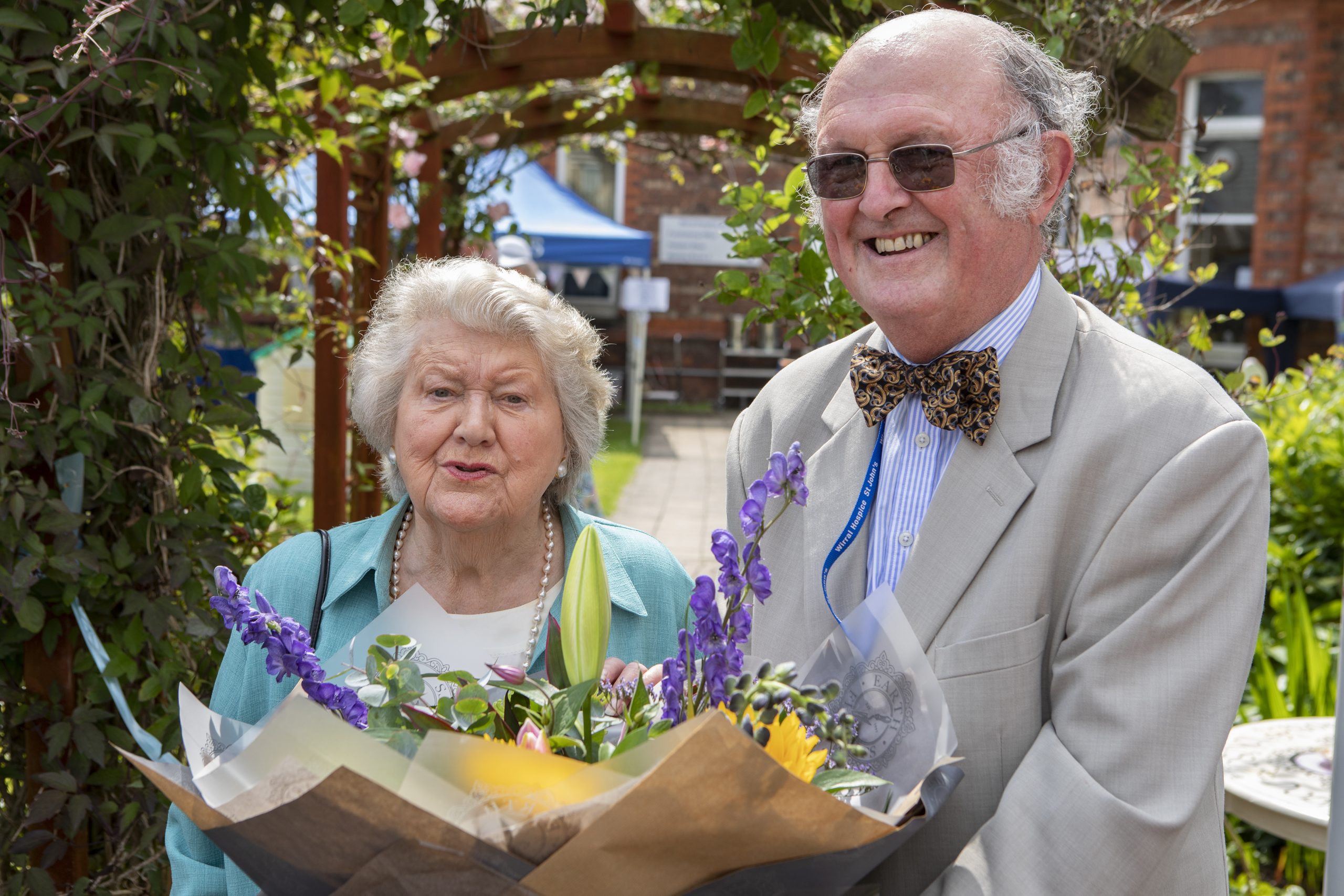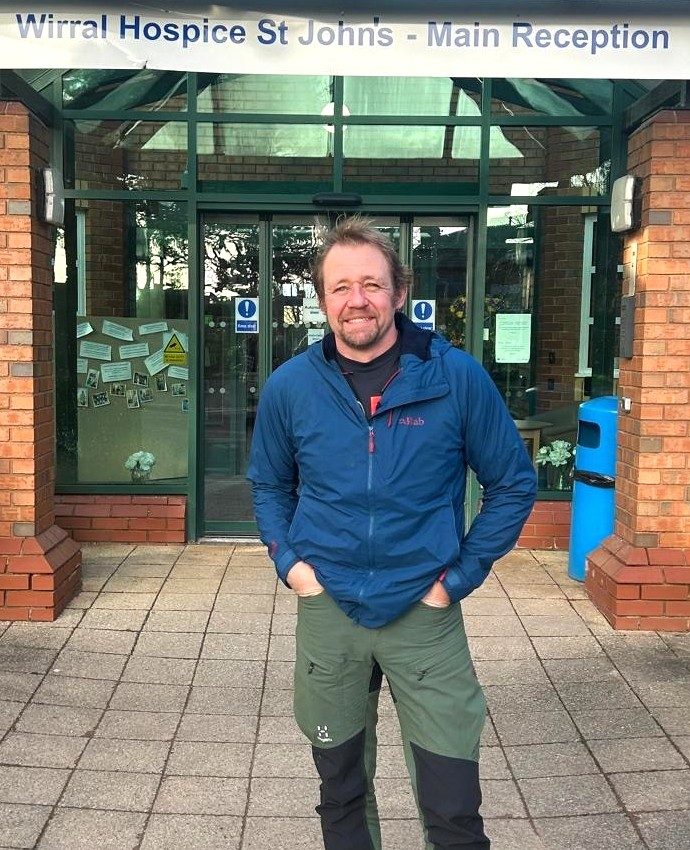Everybody Hurts. Sometimes. Dr Andrew works to alleviate pain
Published on: 10/09/2025 Unless you’re Bruce Willis’s character, David Dunn, in the famous movie, Unbreakable, you’re going to feel pain at some time, for some of the time, or maybe most of the time. (If you haven’t seen the film, it’s a recommend and rated, PG-13).
Unless you’re Bruce Willis’s character, David Dunn, in the famous movie, Unbreakable, you’re going to feel pain at some time, for some of the time, or maybe most of the time. (If you haven’t seen the film, it’s a recommend and rated, PG-13).
Acute pain is short term and will come from a knock, a twist, a break or a bump. Chronic pain is symptomatic of a long-term condition or illness. Arthritis would be such an example. Then there’s our old friend, enemy actually, intermittent pain. Anybody suffering from toothache can attest to having that recurring agony.
Hospice patients, whether outpatients, day patients or inpatients will experience all of these types of pain. They may have had their pain pre-diagnosis (it may be unrelated) or as a direct symptom of their life-limiting illness or from an accident stemming from this.
Of course, no two people will report pain the same way and finding the root causes whether physical or emotional or a combination of both takes great experience.
Day to day our hospice doctors and consultants will be aware of treating pain with traditional and specialist painkillers as fits each patient but sometimes an extra pair of eyes and expert assessment can certainly help.
That’s why we have our weekly Interventional Pain Service clinics overseen by experienced consultant in anaesthetics and pain medicine, Dr Andrew Jones.
He knows everything about periaqueductal grey matter, the limbic system and what might be going on in your sensory and frontal cortexes but, most importantly, he often finds a way to relieve our patients’ pain.
Don’t take our word for it. Here’s some patient feedback,
“I’d had a fall in my garden and a resulting muscle spasm in my neck meant I could not lift my head up for a couple of weeks. An injection in my neck from Dr Jones gave me almost instantaneous relief and I could look up again. That was six months ago, and I’ve had no trouble since.” Patient living with COPD and Heart Failure.
“Since my stroke I’d been having pains in my back, lower and upper, and in my neck and shoulder. I said that I would like to see Dr Jones when it was offered by the hospice. That was on a Monday. By that Friday I had my first injection and within minutes my shoulder was feeling better. After a second course a week later for my other symptoms I was pain free.” Patient living with Parkinson’s disease, ten months post-injections.
Dr Jones has been serving Wirral Hospice patients for over twelve years now and although he specialises in general pain relief, broken and healing bones and tissues, trauma, arthritis and more, he has a keen interest in alleviating pain in palliative patients.
Trained in the late 70’s and early 80’s at the famous teaching hospital, Bart’s (St Bartholomew’s Hospital, London), he spent six weeks at Hackney’s St Joseph’s Hospice in 1980.
St Joseph’s has a long history of hospice care stemming back to 1905 and it’s also where Dame Cicley Saunders, the acclaimed founder of the modern hospice movement, spent some of her formative years, from 1958, researching the effect of both medical and psychological interventions for people with life-limiting illnesses.
Fired by the teachings of anaesthesia and pain management, Dr Jones, having met and married his medical school sweetheart, Marianne, got his first post at Arrowe Park Hospital and, so, Wirral was to become their forever home.
So much so that Andrew, Marianne and their sons, Guy and Vaughan, are now dyed-in-the-wool Tranmere Rovers football fans.
“Yes, I remember the first game I went to, 1989, Stockport County, 1-0 to Rovers, Ian Muir.”
Impressive!
With these credentials, and Tranmere’s recent challenges at the wrong end of the table, working with local patients to assess and establish how their pain manifests and the likely interventions that might provide relief, might be good for both parties. HaHa!
The psychological services that the hospice also provides like counselling, social work and spiritual support, for patients and families, are components in the alleviation of pain which the hospice also offers services for, and Dr Andrew is a big advocate. This, coupled with physical support from physiotherapy, complementary therapy and occupational therapy are also integral parts of the jigsaw of pain management and relief.
Medical treatments, based on learned and ongoing research and practice, do make a massive difference to many hospice patients.
After a full consultation and assessment of patients’ medical history and an examination of the source of their physical pain Andrew’s expertise is in delivering trigger point injections and nerve blocks.
A trigger point is a tender point of the body, a muscle in the back, neck or other place, which, when an injection of a local anaesthetic with maybe (not always) a mix of a small amount of steroid is administered, helps block some of the nerves signalling the pain.
Of course, for a myriad of physiological reasons, it may not work in all patients but, as you’ve read, many do report relief very soon after injections and this usually takes away at least one factor that affects their physical and psychological wellbeing.
Every Friday there’s a full waiting room of our patients waiting for ongoing analysis and treatment of pain associated with their life-limiting illness and Dr Andrew Jones is an expert in delivering it.
Maybe, Samuel L Jackson’s character in Unbreakable, Elijah Price, should make an appointment!
More Wirral Hospice Outpatients Interventional Pain Service reviews can be read by clicking the link below,





